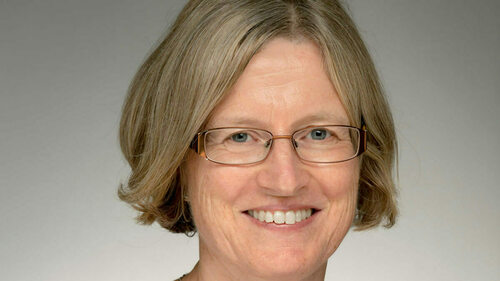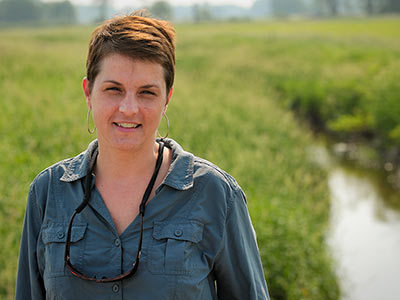
Two University of Notre Dame faculty members will participate in a Vatican conference titled “Radical Ecological Conversion after Laudato si’: Discovering the Intrinsic Value of All Creatures, Human and Non-human.”
Sponsored by the embassies of Georgia, Germany and the Netherlands to the Holy See, this gathering will be held at the Pontifical Gregorian University in Rome March 7-8. Cardinal Peter Turkson, prefect of the Dicastery for Promoting Integral Human Development, will deliver the opening address.
Notre Dame faculty delivering talks include Celia Deane-Drummond, professor of theology and director of the Notre Dame Center for Theology, Science and Human Flourishing, and Jennifer Tank, Galla Professor of Biology and director of the Notre Dame Environmental Change Initiative.
Deane-Drummond, who will deliver one of the opening keynote addresses, worked as an adviser to the organizing committee under the auspices of her roles as director of the Center for Theology, Science and Human Flourishing and current chair of the European Forum for the Study of Religion and the Environment.
“The true implications of the message of Laudato si’ for the life of the Church, calling her to profound ecological conversion, have yet to be realized,” said Deane-Drummond. “My hope is that this conference will help stimulate greater conversation and insight about the meaning of Pope Francis’ vision of integral ecology. The global representation across academic and practitioner divides, including the relevant disciplines in science and theology, will help to turn this vision into reality.”
The conference will be an ecumenical gathering of priests, religious, scientists and teachers to explore the implications for the academy, the Church and society of the teaching of Laudato si’ on the intrinsic worth of all creatures — and the need to reorder human society so as to respect the natural order of creation.
 Jennifer Tank
Jennifer Tank
Through scholarly presentations and dialogue, the conference will identify ways the Church and its partners may bring about the radical ecological conversion of individuals and of economic, social and political agencies and communities.
“The fact that Pope Francis sees the global environment as ‘a common good, belonging to all and meant for all’ sets an inspirational tone for me as a scientist as I prepare to attend the conference,” said Tank. “This global outlook grounds us in the shared values that are common to people everywhere, challenging us to seek solutions that are both scientifically sound and socially just.”
Contact: Amanda Skofstad, assistant director of media relations, 574-631-4313, skofstad@nd.edu